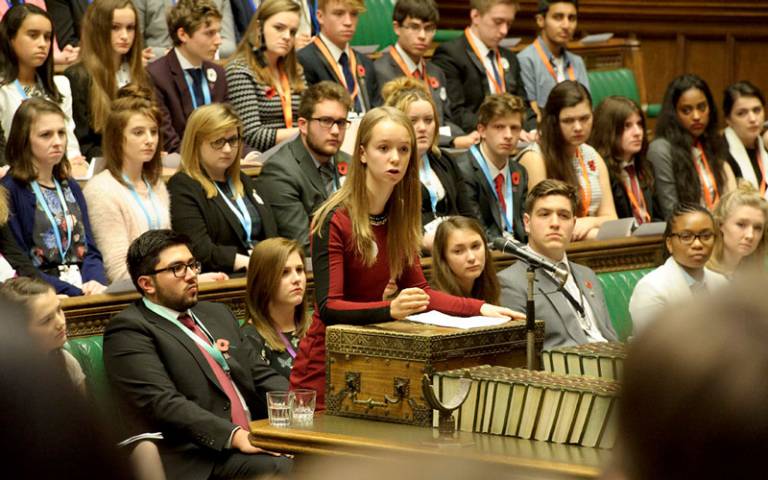Project exploring how political engagement differs between social classes receives funding
5 December 2019
A UCL Institute of Education (IOE) project exploring the difference in political engagement between young people has received funding from the Nuffield Foundation.

The project examines how political engagement differs between young people from disadvantaged and more privileged backgrounds and how this changes over the life course. It also looks at whether post-16 educational pathways reinforce a gap in political engagement.
At age 16, teenagers choose different educational tracks such as studying A Levels or undertaking various vocational courses. They also consider whether to enrol in higher education or not.
The researchers will explore whether these pathways have a continuing influence on young people’s political engagement and whether they keep disadvantaged young people locked in a cycle of apathy and alienation. The research will focus on post-16 pathways in particular because the education system branches out at age 16 and because late adolescence has been identified as a crucial period in influencing whether young people participate in politics or not.
The project will use data of the British-Household-Panel-Study/Understanding-Society (BHPS/US).
Dr Germ Janmaat, project co-investigator, said: “Major social differences in political participation are generally seen as problematic for democracy. If the poor and less-educated have low voting rates and do not make their voices heard in other ways, democratic governance will be less responsive to their interests. This, in turn, could erode the public legitimacy of democracy among the socially disadvantaged.
“If it shows that post-16 educational pathways exacerbate social disparities in political participation, a case can be made for reforming post-16 education in ways that enhance the engagement of disadvantaged groups. One such reform could be to harmonise citizenship education across tracks to ensure that young people experience the same curriculum input regardless of the post-16 educational track they take.”
Links
- View Dr Germ Janmaat’s research profile
- Centre for Learning and Life Chances in Knowledge Economies and Societies
- Department of Education, Practice and Society
Image
- Image: UK Parliament via Flickr (CC BY-NC 2.0)
 Close
Close

